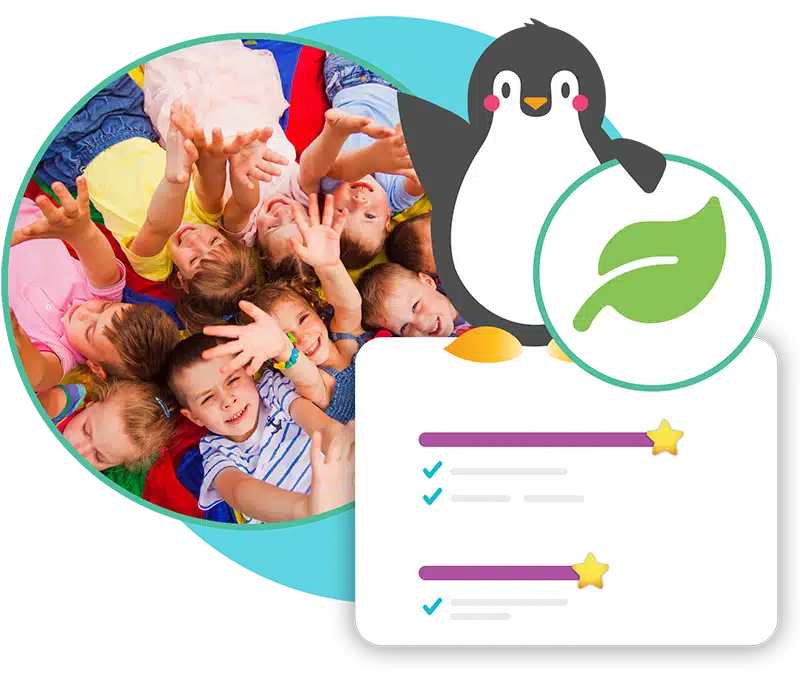Using natural and logical consequences in a preschool classroom requires a thoughtful approach to discipline that fosters growth and understanding in young minds.
By understanding when to apply each type of consequence and tailoring them to the developmental needs of preschoolers, you can help shape responsible, empathetic and socially aware children.
Let’s explore what natural and logical consequences are, when to use them and look at examples of natural and logical consequences that are tailored for preschoolers!
What are Natural Consequences?
Natural consequences are the outcomes that naturally occur as a result of a child’s actions. Unlike imposed consequences, they are not dictated by an authority figure but instead are a direct result of the choices made by the child.
Natural consequences are those that occur without adult interference — and children can learn a lot from these, including cause and effect and how to link their actions with consequences, according to Parenting Now.
Natural consequences are an excellent way for preschoolers to learn about cause and effect, responsibility and decision-making.
The Positive Discipline program recommends that as a child experiences a consequence, show empathy and understanding for what the child is experiencing such as saying, “I’ll bet it was hard to lose your bicycle.”
When it seems appropriate, you could add, “I love you and have faith in you to handle this.”
What are Logical Consequences?
Logical consequences are more intentionally designed by teachers or caregivers. They are related to the misbehavior in a meaningful and logical way, aiming to teach a lesson while maintaining a respectful and supportive environment.
Logical consequences are especially effective when natural consequences may not be practical or safe.
When Not to Use Natural Consequences
While natural consequences can be powerful tools for learning, there are situations where they may not be appropriate. Avoid using natural consequences when:
Safety is compromised: If there’s a risk of harm to the child or others, immediate intervention is necessary and waiting for a natural consequence is not an option.
The consequence is too severe: If the natural consequence is too extreme for the child’s age or emotional development, it may be more beneficial to explore logical alternatives.
Examples of Natural Consequences for Preschoolers
Not wearing a jacket on a cold day: The child may feel cold, teaching him or her the importance of dressing appropriately for the weather.
Refusing to share toys: Other children may not want to play with the child who refuses to share, helping them understand the value of cooperation.

Examples of Logical Consequences for Preschoolers
Hitting another child: A time-out to give a brief break from the group allows the child to calm down and understand that hitting is not an acceptable way to express frustration. You also might encourage the child to apologize to the person they hit promotes empathy and social skills.
Lying: If a child lies about completing a task, they may lose the privilege of choosing an activity for a certain period. And when children help clean up a mess they lied about, it reinforces responsibility.
Check out this scenario from the Oklahoma Cooperative Extension Service, in which the the caregiver discusses the consequences of an action with the child before applying the consequence:
In Jessica’s family, there is a rule that you must first eat all of your vegetables before getting dessert, but Jessica chose not eat her vegetables. The logical consequence is that Jessica was unable to have dessert because of her decision.
How Vine Assessments Can Help!

In the preschool classroom, using natural and logical consequences can be a powerful approach to discipline that fosters a positive learning environment.
It’s also important to remember that preschoolers’ developmental growth must be tracked to ensure that children are meeting important milestones linked to behavior and in other key areas. Centers that offer assessments can provide targeted interventions and support services to address these challenges promptly.
Procare Solutions is the only provider of child care management software to offer integrated proprietary early childhood assessments for children from birth to 5 years old at no additional cost with Vine Assessments.
Vine Assessments is an integrated framework that gives early childhood educators a way to clearly articulate the growth and development of children in their care. Its assessments align with standards in all 50 states. Teachers using Procare can tie their lessons and observations directly to the appropriate Vine Assessments indicator from the web-based software and Procare child care mobile app.
Download “Why Assessments Matter in Early Education,” a free eBook that will answer more of your questions and get you ready to include assessments in your child care program!


